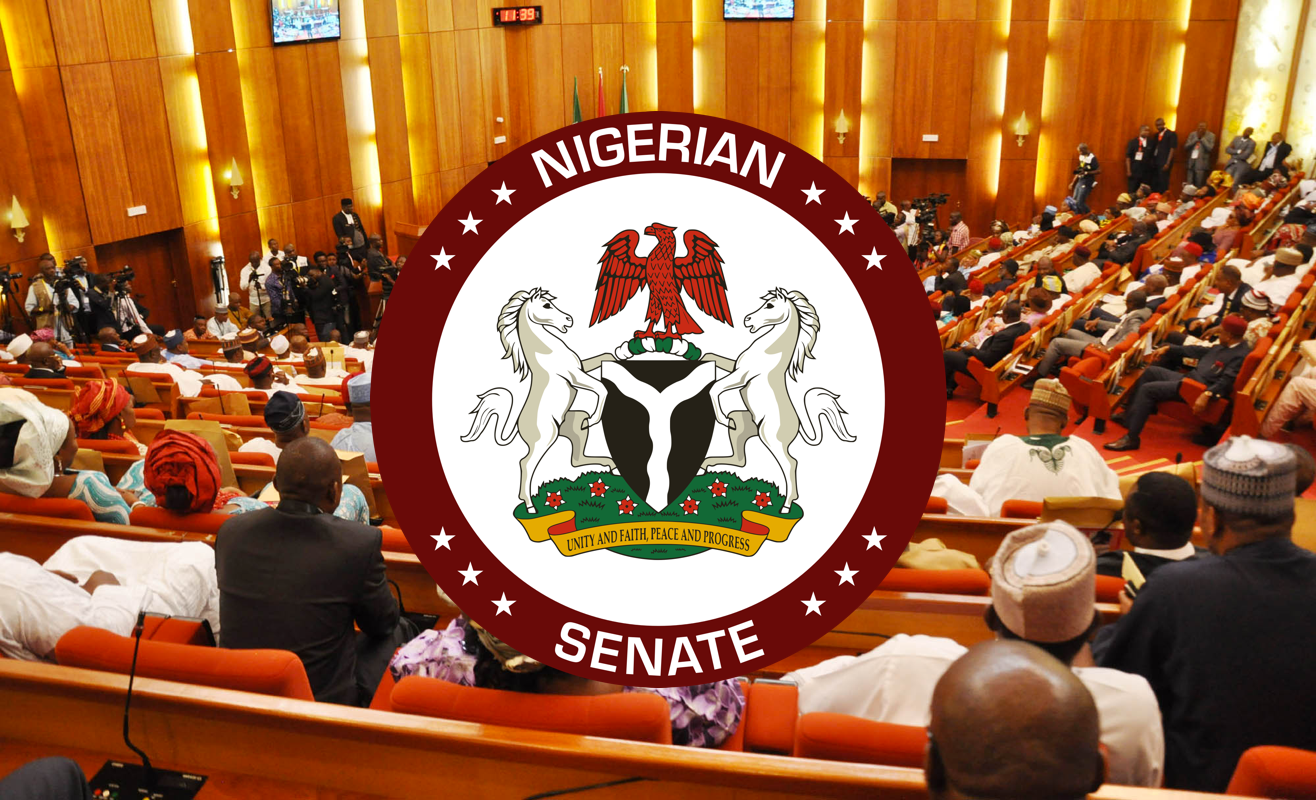By Adum Ter Alex
INTRODUCTION
The very renowned and revered Prof. Attahiru Jega, former Chairman of the Independent National Electoral Commission (INEC) is reported to have opined at a public lecture delivered recently in Abuja that the National Assembly lacks the constitutional powers to reorder the sequence of elections. Consequently, he has advised INEC to proceed to Court to seek judicial interpretation of the powers of the National Assembly to reorder the sequence of elections. His thesis is that INEC is constitutionally independent and the sole body with the prerogative to fix the sequence and dates for the conduct of state and federal elections under the Constitution of the Federal Republic of Nigeria (CFRN) 1999 as amended. Based on the foregoing, he contends that the National Assembly lacks the powers to tamper with or reorder the sequence of elections as released by INEC through the Electoral Act amendment without deference to the constitutional powers of INEC to undertake, organise and supervise the organisation of federal and state elections as prescribed under the Constitution.
While I commend the second leg of the Professor’s intervention, which is to the extent that INEC should to go to Court, I most respectfully, however, wish to disagree with the first part of his submission. The first part contends that the National Assembly lacks the power to reorder the sequence of elections. Such a proposition in our humble view is not only in error, but also at variance with the clear and unambiguous provisions of the Constitution and risks misleading the INEC, the Executive and the undiscerning public. This is especially so, having regard to all the relevant provisions of the said CFRN 1999 and the extant Electoral Act 2010 (as amended).
To appreciate the thesis of our point of divergence, we crave your indulgence to formulate and resolve three fundamental questions to wit:
-
What is the limit of the law-making powers granted to the National Assembly under the 1999 CFRN?
-
What is the extent of the powers vested in INEC under the said Constitution?; and
-
Does the reordering of the sequence of elections by the National Assembly in any material particular detract from its powers under the Constitution, interfere with the powers vested in the INEC and its independence under the Constitution or constitute an illegality?
THE SCOPE OF THE POWERS OF THE NATIONAL ASSEMBLY TO MAKE LAWS UNDER THE 1999 CONSTITUTION
To answer the first question as formulated above, which bothers on the limit of the powers of the National Assembly under the CFRN 1999, it is important to reproduce the provisions of the Constitution with respect to the powers vested in the said National Assembly. Section 4 of the Constitution provides that:
(1)’The legislative powers of the Federal Republic of Nigeria shall be vested in a National Assembly for the Federation, which shall consist of a Senate and a House of Representatives’; and
(2)’The National Assembly shall have power to make Laws for the peace, order and good government of the Federation or any part thereof with respect to any matter included in the Exclusive Legislative List set out in Part I of the Second Schedule to this Constitution.’
Note that the underlined portion emphasises that with respect to any matter included on the Exclusive Legislative List. This clearly indicates that the powers of Law making for the order and good governance of Nigeria are vested in the National Assembly to the exclusion of any other arm and authority of government. To this extent, an extreme view of the powers vested in parliament (National Assembly) is to suggest that the National Assembly is supreme. The implication is that the National Assembly has unfettered powers, subject only to the supremacy of the Constitution to make laws on any matter listed for its legislative competence by the Constitution.
A celebrated English Constitutional Lawyer Dicey, A. V., once opined that no one may question the validity of an act of parliament. He audaciously stated that,‘True it is that what parliament doth no authority on earth can undo’. This is because under the traditional British system, Parliament is restrained in the laws that it can pass only by its own better judgment. In Nigeria, a highly respected constitutional Lawyer, Prof. Ben Nwabueze, also opined that, “…the Legislature is the distinctive mark of a country’s sovereignty, the index of its status as a state and the source of much of the power exercised by the executive in the administration of government. The sovereign power of the state is therefore identified in the organ that has power to make Laws by Legislation, and to issue ‘commands’ in the form of Legislation binding on the community.” To this extent, it is trite to stress that no one can question the legitimacy or legality of a Law made by the National Assembly, except the Judiciary, and this is only where the Law is inconsistent with the Constitution. See Abacha V. Fawehinmi (2000) 4SC (Pt. 11) and Bolonwu V. Gov. Anambra State (2009) 18 NWLR (Pt.1172) 13
This means that the limits of the powers of the National Assembly are only circumscribed by the Constitution. And this is only in relation to matters where the Constitution itself has covered the field. The principle is that where the constitution has defined or provided for the exercise of a right in a particular manner, no legislation either by the National Assembly or a State House of Assembly can extend it in a statute short of an outright constitutional amendment. See Attorney General of Ogun State v Attorney General of the Federation [1982] 2 NCLR, 166, 180-181, or repeat, duplicate, add or subtract from the provision. See Attorney General of Abia State v Attorney General of the Federation, (2002) 9 NSCQLR 670, 785, 788.
The implications of the two authorities above are that only the Constitution is superior to the National Assembly and where the National Assembly exceeds its powers under the Constitution, it is only the Judiciary that can reverse it. This is because under the principle of the doctrine of separation of powers in a constitutional democracy, the powers of checks and balances are allocated in the three arms of government thus: the Legislature which makes the law, the Executive, which implements the law and the Judiciary, which interprets the law. In this regard, the legislative powers of the National Assembly are constitutionally restrained or subjected to the powers of the Judiciary to interpret the laws made by it to ensure that the National Assembly does not become a Law unto itself. John Locke (1632-1704) who propounded the constitutional theory of the doctrine of separation of powers wrote in his second treaties of Civil Government as follows: “It may be too great a temptation for the human frailty, apt to grasp at powers, for the same persons who have power of making laws, to have also in their hands the power to execute them, whereby they may exempt themselves from the law, both in its making and execution to their own private advantage.”
Thus, the CFRN 1999, provides under Section 4(8) that: “Save as otherwise provided by this Constitution, the exercise of legislative powers by the National Assembly shall be subject to the jurisdiction of the courts of law and of judicial tribunals established by law and accordingly, the National Assembly or a House of Assembly shall not enact any Law that ousts or purports to oust the jurisdiction of a Court of law or of a judicial tribunal established by law.” It is important to stress that the National Assembly’s powers to make laws for the Peace, Order and Good Governance, is limited to matters contained in the Exclusive Legislative List. It cannot be extended as in military dictatorship or unconstitutional government to any part thereof and with respect to any matter whatsoever.
So what are the limit, extent and scope of the powers of the National Assembly under the said Exclusive Legislative List with respect to the conduct of elections? Item 22 of the Second Schedule to the CFRN 1999 otherwise known as the Exclusive Legislative List provides that the National Assembly shall have powers to enact laws with respect to the “election to the offices of the President and Vice President or Governor and Deputy Governor and any other office to which a person may be elected under this Constitution, excluding election to a local government council or any office in such council. “
It is pursuant to this provision, read in conjunction with the provisions of Section 4(2) and Section 15 para (i) of the Third Schedule to the Constitution that the National Assembly has always enacted the Electoral Act to guide the conduct of elections organised by INEC. The extant Electoral Act was enacted in 2010, and it is this Act that the National Assembly seeks to amend in 2018 to, amongst other things, provide for the adoption of electronic voting, automatic electronic transmission of results and reorder the sequence of elections to commence with the National Assembly elections, followed by State Houses of Assembly/Gubernatorial elections and the Presidential elections to hold last. That Prof. Jega and some other stakeholders are opposed to these amendments, but have, however, recommended that INEC should approach the Court for a judicial pronouncement is, to say the least, commendable because that is in line with the constitutional order.
THE STATUS AND POWERS OF INEC UNDER THE CONSTITUTION
With respect to the second query regarding the scope of the powers of INEC, it is important to note that the Commission is one amongst the Extra Ministerial Departments (EMDs) established under Section 153(1), CFRN 1999, particularly paragraph (f). And by virtue of its establishment under the Constitution, its organic legal character is not like any other statutory agency or Commission established by an Act of the National Assembly. Bodies established by an Act of the National Assembly are inferior to the INEC or sister agencies created under Section 153(1) CFRN. This implies that INEC and all the statutory bodies established under Section 153(1) are constitutional creations almost akin to the National Assembly and it would not be presumptuous to state that the National Assembly cannot legislate on its powers, except expressly permitted to do so by the Constitution. Put differently, the constitutional status of agencies created under Section 153(1) means the National Assembly cannot by legislation extend or repeat, duplicate, add or subtract from the express, clear and unambiguous constitutional provisions regarding their functions, except where constitutional provisions are not clear or a lacuna exists. Where there is no lacuna, no such legislative extension or subtraction of their powers is permissible, except an outright constitutional amendment. See Attorney General of Ogun State v Attorney General of the Federation (Supra) and Attorney General of Abia State v Attorney General of the Federation (Supra).
Having established the constitutional status of INEC and the limits of the powers of the National Assembly to interfere with its powers, the next logical sub-question to resolve is, what are these constitutional powers that cannot be subtracted or added to and those that the National Assembly is permitted to add, extend or subtract from INEC? This is the issue which appears to be the bone of contention in Jega’s submission with respect to the recent reordering of the sequence of elections by the National Assembly.
Section 15(a) of the Third Schedule of the CFRN 1999 vests INEC with the sole constitutional powers to, amongst other things, “organise, undertake and supervise all elections to the offices of the President and Vice-President, the Governor and Deputy Governor of a State, and to the membership of the Senate, the House of Representatives and the House of Assembly of each State of the Federation.” Section 132(1) provides that “an election to the office of President shall be held on a date to be appointed by the INEC in accordance with the Electoral Act.” Similar provisions are contained in sections 76(1), 116(1) and 178(1) for National Assembly, State Houses of Assembly and Governorship elections. What this means is that in addition to the underlined powers under Section 15(a) of the Third Schedule, which is the power to organise, undertake and supervise elections to the mentioned offices, INEC also has the exclusive powers to fix the dates for the said elections. Interestingly, the Constitution is, however, silent on the powers to sequence the elections and the type of voting procedure to be adopted.
The School of thought, which includes Prof. Jega as its arc protagonist, however, holds the view that the powers to sequence the elections and all other incidental powers are also inherent in INEC by necessary constitutional implication. Jega and the pro-INEC School are persuaded in their view and are inclined to argue that a combined reading of the operative words in Section 15(a) of the Third Schedule, which is to the extent that INEC is empowered to “organise, undertake and supervise all elections to the offices of the President and Vice-President, etc. ….“, must be interpreted broadly. Thus, regardless of the very clear and unambiguous provisions of the Section, which clearly excludes the powers to decide the mode and sequence of elections, the protagonists insist the powers are to be interpreted to give absolute wholesomeness to the supremacy of INEC not only to conduct, but also to sequence the elections without interference from any quarters. For example, the argument is that the power to ‘organise’ should not only be understood to include the power of INEC to make necessarily arrangements so that the conduct of elections can be executed effectively, but should also extend to the power to arrange by systematic planning and united efforts, the methodical and efficient sequencing of the elections such as to make the task for the conduct of the elections formed into a structured and coherent whole.
In the case of the power to ‘undertake’, it must go beyond the mere assumption of responsibility for the conduct of the elections to the responsibility for the processes, procedures, sequence and order of the elections. While with regards to the power to ‘supervise’, it must not just be seen as the power to inspect with authority, but the power to superintend over the entire process of the conduct of the elections. This would necessarily include the powers to determine when, where and how the elections are to be conducted, including the power to determine the mode, style and character of the elections. The powers to fix the date also having being granted by the constitution, it follows that the power to fix the time and sequence of the elections must be construed as being collateral to the constitutional power to fix the date even though the constitution itself is silent on that and the mode and style of the election. This undoubtedly will, however, amount to importing different meanings and words into the express, clear and unambiguous provisions of the Constitution; an act, which is certainly at variance with the spirit and the letter of the Constitution. In Dominic Onuorah Ifezue V. Livinus Madugha & The Deputy Sheriff, Onitsha (1982). S.C. 68, the Supreme Court insisted that all Statutes and the Constitution must be literally construed and constructed where the wordings are clear, express and unambiguous.
CONSTITUTIONALITY OR OTHERWISE OF REORDERING OF THE SEQUENCE OF ELECTIONS
This brings us to the third question, which is whether or not the National Assembly has not overstepped its bounds by the reordering of the sequence of election. In as much as the pro-INEC arguments are persuasive, is it truly correct to assert that the actions of the National Assembly in reordering the sequence of elections under the 2018 amendments of the Electoral Act, actually constitutes a usurpation or an interference with the inherent constitutional powers of INEC?
In our humble view, the whole issue is resolved under the doctrine of covering the field. The proposition is that ultimate coverage is constitutional coverage. It binds both arms and tiers of government to its prescription. Needless, we re-emphasis on the weight of the two previously quoted judicial authorities that, once the Constitution itself has specifically provided for the exercise of a particular right or function in a specific way and manner, no matter how defective, not even the National Assembly can legislate to contrive an alternative way out of it, except through a constitutional amendment. However, where it is silent on a particular matter it has partially covered the field, and the National Assembly and only it, is empowered to legislate to cover up the lacuna or cure the perceived mischief.
This means that where there is any void in any constitutional provision, it is only within the constitutional province of the National Assembly to act in correction of the void. This is why the Supreme Court in the course of adjudicating over the 2011 round of election petitions was quick to advice election petition litigants who felt a miscarriage of justice occurred by the strict interpretation of the 180 days 2010 amendment to the CFRN 1999, to appeal to the National Assembly for a further amendment rather than inviting the Court to strike it down. This is because, it is not permissible for the Judiciary or the Executive and its agencies, no matter how loftily created, i.e., even if constitutionally crafted, to assume the powers to act to cure the mischief, except such actions be limited to affirming the full meaning of the letter, spirit and intent of the Constitution or to interpret it as it is, not as it ought to be.
This principle was followed in Abraham Adesanya v President of the Federal Republic of Nigeria and Anor. (1981) 5. S.C. 112 at 134, where the Supreme Court held that “courts have a duty when interpreting the provisions of the … Constitution to look at the Constitution as a whole and construe the provisions in such a way as not to frustrate the ‘hopes and aspirations’ of those who have made the strenuous efforts to provide the Constitution for the good government and welfare of all persons in the country on the principles of freedom, equality and justice.”
To this extent, while it is tempting to stretch the execution and interpretation of the powers of INEC as enunciated in Section 15(a) of the Third Schedule and Sections 132(1), 76(1), 116(1) and 178(1) to purport to include the powers of INEC to fix the sequence of elections, the net effects of doing so will undermine our constitutional and democratic system of governance, because the combined reading of all the relevant sections of the Constitution clearly indicates that the letter, spirit and intent of the Constitution failed to provide any such powers in the INEC to sequence or decide on the mode of elections.
On the contrary, the Constitution itself recognises that it has not covered the field, which is why sections 132(1), 76(1), 116(1) and 178(1) demand that INEC conducts elections it is empowered to conduct in accordance with the provisions of the Electoral Act as enacted by the National Assembly. Section 15 para (i) of the Third Schedule to the Constitution particularly provides that in addition to the constitutional powers or functions vested in INEC, the Commission is to also “carry out such other functions as may be conferred upon it by an Act of the National Assembly”, an injunction, which is consistent with the powers of the National Assembly under Section 4(2) that provides that ‘The National Assembly shall have power to make laws for the peace, order and good government of the Federation or any part thereof with respect to any matter included in the Exclusive Legislative List set out in Part I of the Second Schedule to this Constitution.” Items 67 and 68 of the said List further reinforce this power.
Note that “good government of the federation or any part thereof” in Section 4(2) is itself restricted to matters on the Exclusive List and not a blanket phrase or cover to translate a residual matter of administrative nature suited for residual administrative regulation to the Exclusive list. If it did, it would mean the National Assembly could pick on any subject matter at its whim (in spite of its apparent residual nature) and legislate on it to bind the Executive and its administrative agencies, the Judiciary and other tiers of government in the name of good governance of the federation or any part thereof from time to time. It is important to emphasis that the Constitution does not vest the National Assembly with such powers, because when a Constitution such as a written constitution intends to give concurrent or exclusive power to an organ or constitutional agency of government, it does so expressly (by providing, ‘So and so organ of government shall, to the exclusion of all other organs, make laws on so and so, or determine so and so matter or question, in so and so way and manner, etc.). It does not give it in broad uncertain terms to be interpreted orguessed. The powers or functions are never presumed; they are certain and specific. The literal meanings of the wordings of the Constitution are to be understood as they are, not what they ought to be, because the Constitution is what it is and not what it ought to be. This clearly is the letter and spirit of the Constitution, which must be upheld. In Attorney General v Mutual Tontine Westminster Chambers Association Ltd (1876) 1. Ex D 469 & Bradlaugh v Clarke (1883) 8 App. Cases. 354, Lord Jessel, M.R & Lord Fitzgerald maintained that the object of all interpretations is to discover the intention of the lawmakers, which is deducible from the language used. Once the language is clear and unambiguous, the courts are to give effect to it. The courts are not to defeat the plain meaning of an enactment by the introduction of their own words and meaning into the enactment.
Accordingly, in as much as the Constitution has not given the National Assembly the absolute powers to legislate on all matters, so also it has not specifically given INEC the powers to decide the sequence, method and time of election. And in the absence of any specific provisions under all the relevant sections of the Constitution granting INEC the powers to fix the sequence or the mode and style for the conduct of the elections it is empowered to conduct under the Constitution, such powers have always been the subject of legislation by the National Assembly under the Electoral Act. In the extant Electoral Act 2010, for instance, the mode and style of election are specified under Section 52(1) as Open Secret Ballot, while electronic voting is prohibited under Subsection 2 of the said Section. The mode of accreditation, the hour of election and the sequence of elections are also provided under the Act, but are, however, left to the administrative discretion of the Commission to execute. See Sections 48(1), 49(1) & (2) and 25 Electoral Act 2010.
By the combined provisions of Sections 4(2), 15 para (i) of the Third Schedule, 132(1), 76(1), and 116(1) as well as 178(1), INEC is commanded by the Constitution to exercise its powers in accordance with the Electoral Act as may be enacted by the National Assembly. Thus, beyond the constitutional power to fix the dates of the various elections as expressly provided in the above mentioned sections of the Constitution, it is undoubtedly clear that the power to sequence the elections is not a power vested in INEC by the Constitution. If anything it is a power vested in the INEC by the Electoral Act 2010, which was made by the National Assembly. For the avoidance of the doubt, Section 25(1) of the Act provides that “elections into the offices of the President and Vice President, the Governor and Deputy Governor of a State, and the membership of the Senate, House of Representatives and House of Assembly of each State of the Federation shall be held in the following order-
-
Election to each House of the National Assembly shall hold on a date to be appointed by the INEC in accordance with the Constitution and this Act;
-
Election to a House of Assembly of a State shall hold on a date to be appointed by the INEC in accordance with the Constitution and this Act;
(5) An election to the said office of the President shall hold on a date to be appointed by the INEC in accordance with the Constitution and this Act; and
(7) An election to the office of the Governor shall hold on a date to be appointed by the INEC in accordance with the Constitution and this Act.’
This is the sequence, which the National Assembly outlined in the Act. However, a careful reading of the main body of Section 25 in relation to Subsections (1), (3), (5) and (7), would suggest that there is a latent mischief. Whereas the main Section 25 combines the Presidential and Gubernatorial elections together and sequences them to come first, the National Assembly and State Assembly elections are combined together to come last. The subsequent order in subsections (1), (3), (5) and (7), however, puts the National Assembly election first, State Assembly second, Presidential third, and Gubernatorial last, a situation that allowed the INEC to exploit, by administratively reordering the sequence of elections in accordance with its discretion, a discretion that increasingly is always exercised in favour of the preferences of an incumbent President.
This has made it possible for the incumbents to influence INEC, as was the case with President Jonathan in 2015, to determine the order and sequence of elections. Incumbent Presidents since 2007 have influenced INEC to determine that the Presidential elections should hold first. This is in order to create a bandwagon effect, as once the Presidential vote is decided, the other subsequent elections significantly follow the trend. This constitutes a serious mischief in the extant law, which the National Assembly may have deliberately allowed to fester because it favoured the incumbent majority party at any time, but which it seeks to correct in the 2018 amendments to provide a level play field for all.
Another angle to look at it, may be that the National Assembly in its own wisdom may have allowed the INEC that prerogative perhaps for the simple reason that such matters should be flexible and in the administrative purview of INEC regulated by its subsidiary regulations. However, administrative rules, acts, directives, orders, notices, circulars, subsidiary legislations or protocols in whatever form made under the direction of superior legislative enactments are not laws in themselves. Subsidiary legislation (regulation) if consistent with its enabling Act becomes one unit of law or co-substantial with the parent Act. It cannot, on its own strength, cover any field or extend the scope of the parent Act where the parent Act does not indicate an intention to do so or the legislature has not specifically delegated the full coverage of the subject matter to internal legislation. Coverage flows only from the constitutional provisions and the terms of the parent Act. In Airlines of New South Wales Pty Ltd v New South Wales [1964] HCA 2 & Airlines of New South Wales Pty Ltd v New South Wales (No 2) [1965] HCA 3, it was held that it would be a strange usurpation of legislative power by the executive if a Ministry, Department and Agency (MDA) were to make a regulation, expanding the scope of an enabling statute to completely exhaust and cover the field of the subject matter under the guise of delegated legislation and thereby tie down the hands of the legislative authority of the states in the process. That could unsettle the doctrine of separation of powers in its horizontal and vertical perspectives.
The National Assembly, being the donor of the power, including the power to determine the mode of the election, the time for the election and the sequence for the election, can at anytime amend the Electoral Act to extend or limit the power as it deems fit. That is why since 1999, the National Assembly has always tinkered with the Electoral Act to guide INEC in the conduct of all elections, including the 2018 amendment, which unlike the previous amendments, has finally recognised electronic voting and transmission of results, in addition to the reordering of a fixed sequence of elections amongst several other novel provisions.
CONCLUSION
In the final analysis, if Jega and the pro-INEC school of thought are so concerned by the amendments bordering on the power to sequence the elections, which power is not specifically granted under the Constitution, why is it that they are not similarly bothered about the amendments concerning the mode of voting and style of transmission of results? If these protagonists feel that the amendments to the sequence of elections border on INEC’s constitutional powers to ‘organise’, ‘undertake’ and ‘supervise’ the conduct of elections, why is it that similar concerns are not extended to the amendment as to the mode of election and style of transmission of the results? This, to our mind at best, amounts to cherry picking.
In any case, the National Assembly has always legislated on the sequence of elections as evidenced in Section 25 of the Electoral Act 2010; so why the sudden hue and cry that the National Assembly has no such powers as against INEC whose powers in that regard are donated by the National Assembly in the first place. The truth is that none of the powers to wit: to determine the mode of the conduct of elections; the style of transmission of election results; and the sequence of elections are constitutionally vested in INEC. They are, as we earlier stated, additional powers vested in INEC by an Act of the National Assembly. So to that extent, it amounts to unnecessary muscle flexing for anybody to advise INEC not to obey the amendments or to go to Court to challenge the amendments to the Electoral Act 2010.
Such an action, we dare say, would be an exercise in futility and a waste of the Commission’s precious time to prepare and adjust itself to the demands of the new sequence of elections in order to conduct a reasonably free and fair election in 2019. Needless we remind us that the Constitution, as we also earlier stated, places an incumbent obligation on INEC to conduct all elections it is empowered to conduct in accordance with the provisions of the Electoral Act. That is why any election not conducted in substantial compliance with the provisions of the Electoral Act as amended, if the President signs it into Law or the National Assembly uses its veto powers under Section 58(5) CFRN, 1999 to override the President, may be vulnerable to nullification by the Court. See Section 138(1)(b) Electoral Act 2010 (as amended).
-
Adum Ter Alex is a former Attorney General and Commissioner of Justice, Benue State and currently a Partner at Global Solicitors & Partners: Suite C1, Benue Plaza, Plot 72, Ahmadu Bello Way, Central Business District, Abuja Tel: 08033147449, email: alexadum45@gmail.com























Leave a comment